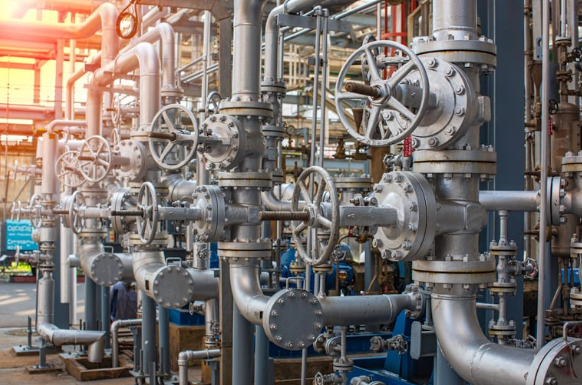Chemical engineering projects are an essential part of the curriculum for final year students in chemical engineering. These projects provide students with an opportunity to apply the knowledge and skills they have acquired throughout their studies to a practical problem. Chemical engineering projects for final year students are diverse and cover a wide range of topics, including process design, optimization, and control, as well as the development of new materials and products.
The primary goal of chemical engineering projects for final year students is to provide them with hands-on experience in solving real-world problems. These projects often involve collaboration with industry partners, which allows students to gain exposure to the latest technologies and industry trends. Chemical engineering projects for final year students also help them develop critical thinking and problem-solving skills, which are essential for success in their future careers.
Chemical engineering projects for final year students are not only an opportunity for students to apply their knowledge and skills, but they also contribute to the advancement of the field. The projects often involve cutting-edge research and development, which can lead to new discoveries and innovations. In summary, chemical engineering projects for final year students are an essential component of the chemical engineering curriculum, providing students with practical experience, critical thinking skills, and the opportunity to contribute to the advancement of the field.

Design and Simulation of Chemical Processes
Chemical process design and simulation is a crucial aspect of chemical engineering projects. It involves the application of mathematical models to predict the behavior of chemical processes, including the flow of materials, heat transfer, and chemical reactions. The goal is to optimize the process to achieve the desired output while minimizing cost and environmental impact.
Process Optimization
Process optimization is the process of improving the efficiency of a chemical process by modifying the process parameters. This involves identifying the key variables that affect the process and optimizing them to achieve the desired outcome. The optimization process is iterative, and it involves the use of mathematical models to predict the behavior of the process.
Reactor Design
Reactor design is a critical aspect of chemical process design. It involves the design of a vessel in which chemical reactions take place. The design of the reactor is crucial in determining the efficiency of the process and the quality of the final product. Reactor design involves the selection of the appropriate reactor type, size, and configuration.
Simulation Tools and Software
Chemical process simulation software is an essential tool for chemical engineers. It enables engineers to model and simulate chemical processes, including heat transfer, mass transfer, and chemical reactions. The software provides a platform for engineers to test different process parameters and optimize the process before it is implemented in the real world.
Some popular chemical process simulation software includes Aspen Plus, ChemCAD, and PRO/II. These software tools provide a range of features for modeling and simulating chemical processes, including the ability to model complex chemical reactions, simulate heat and mass transfer, and optimize the process parameters.
In conclusion, chemical process design and simulation is a crucial aspect of chemical engineering projects. It enables engineers to optimize the process, reduce cost, and minimize environmental impact. Process optimization, reactor design, and simulation software are essential tools for chemical engineers to achieve these goals.
Sustainable and Green Chemical Engineering
Chemical engineering projects that focus on sustainability and green technologies are becoming increasingly popular in recent years. These projects aim to develop innovative solutions that reduce the environmental impact of chemical processes while maintaining their economic viability. Here are some of the most promising areas for sustainable and green chemical engineering projects:
Waste Management and Recycling
Waste management and recycling are essential components of sustainable chemical engineering. Projects in this area aim to develop new technologies and processes for converting waste materials into useful products. For example, researchers are exploring ways to convert plastic waste into fuel, which could reduce the amount of plastic waste in landfills and provide a new source of energy.
Biofuels and Renewable Energy
Biofuels and renewable energy are another promising area for sustainable chemical engineering projects. Biofuels are fuels that are derived from renewable biological sources, such as plants and algae. Projects in this area aim to develop new biofuels that are more efficient and cost-effective than traditional fossil fuels. For example, researchers are exploring ways to use algae to produce biofuels, which could provide a sustainable alternative to petroleum-based fuels.
Carbon Capture and Utilization
Carbon capture and utilization is a cutting-edge area of sustainable chemical engineering. Projects in this area aim to capture carbon dioxide emissions from industrial processes and convert them into useful products. For example, researchers are exploring ways to use carbon dioxide to produce chemicals and fuels, which could help to reduce greenhouse gas emissions and provide a new source of renewable energy.
Overall, sustainable and green chemical engineering projects offer exciting opportunities for students to develop innovative solutions to some of the most pressing environmental challenges of our time. By focusing on waste management and recycling, biofuels and renewable energy, and carbon capture and utilization, students can make a significant contribution to the development of a more sustainable and environmentally friendly future.
Also Read :
- Biomedical Engineering Projects: Innovative Solutions for Healthcare
- High School Engineering Projects: Ideas and Tips for Success
- Software Engineering Projects: Tips and Best Practices
- Mechanical Engineering Projects: Innovative Ideas for Your Next Project
- Data Engineering Projects: Examples and Best Practices